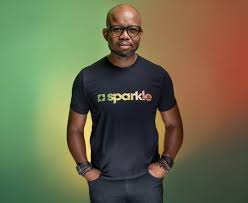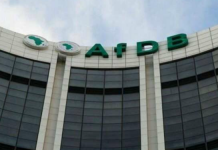According to Uzoma Dozie, Founder and CEO of Sparkle, a Nigerian digital bank, Nigeria is on course to lead Africa in open banking. Dozie points out that preparations for implementing this transformative banking system are progressing quickly, positioning Nigeria ahead of other African nations.
Uzoma highlights that Nigeria is making significant progress in preparing for open banking, positioning itself ahead of other African nations. He notes that the Central Bank of Nigeria (CBN) is actively working with key stakeholders to ensure a smooth implementation of the system. “We are ahead of the curve compared to other African countries,” Uzoma says, predicting that Nigeria will be fully operational with open banking by mid-2025.
Dozie explains that open banking is set to open significant opportunities in Nigeria’s financial sector. By enabling secure access to customer data, it facilitates more lending opportunities for small businesses, which are often underserved by traditional banks.
- Small and medium enterprises (SMEs) typically struggle to access loans due to insufficient financial data. Open banking allows banks and smaller financial institutions to access this data, making it easier to extend credit.
- “More data builds trust, and trust reduces the cost of lending,” Dozie notes. “With better access to financial data, banks can improve their services for both individuals and small businesses.”
Dozie also highlights how open banking can streamline processes for businesses like Uber, allowing faster account setups for drivers through automated systems. “With open banking, Uber can open business accounts for drivers instantly, without needing them to visit a physical location,” he explains.
While open banking promises to transform Nigeria’s financial services, it also faces challenges, especially around regulation and public awareness.
Dozie stresses that collaboration among stakeholders is key to overcoming these obstacles. “The main hurdle will always be coordination and collaboration, particularly in Nigeria. Legislation and public education are critical for ensuring open banking’s success,” he says.
- Addressing concerns about data security, Dozie emphasizes that open banking operates under strict trust and security protocols to protect customer data.
- He adds that open banking strengthens Nigeria’s data privacy laws by embedding strong privacy protections into the system.
Breaking down the concept, Dozie describes open banking as a system that allows financial institutions to securely share customer data, with the customer’s consent, using standardized protocols. “Open banking is like the USB-C of financial services—it standardizes and secures data sharing between banks,” he says.
- This system empowers customers by giving them control over their data, allowing them to authorize their bank to share it with other financial institutions, driving innovation and competition.
- “Open banking puts customers in control of their data, and banks can use this data to make faster, better lending decisions,” Dozie adds. This is particularly helpful for small businesses that lack detailed financial histories.
Nigeria becomes the first African country to establish an open banking framework after the CBN issues operational guidelines on March 7, 2023. These guidelines outline how banks and financial institutions access and manage customer data, making Nigeria a pioneer in the open banking space.
- Open banking allows the sharing of customer-authorized data between banks and third-party firms, such as fintech companies, through Application Programming Interfaces (APIs).
- Once customers grant consent, third-party companies can access their data via the bank’s API, paving the way for greater innovation in financial services.
As Nigeria moves toward full adoption of open banking, the country is set to lead a financial revolution that will reshape how banking services are provided across Africa.













